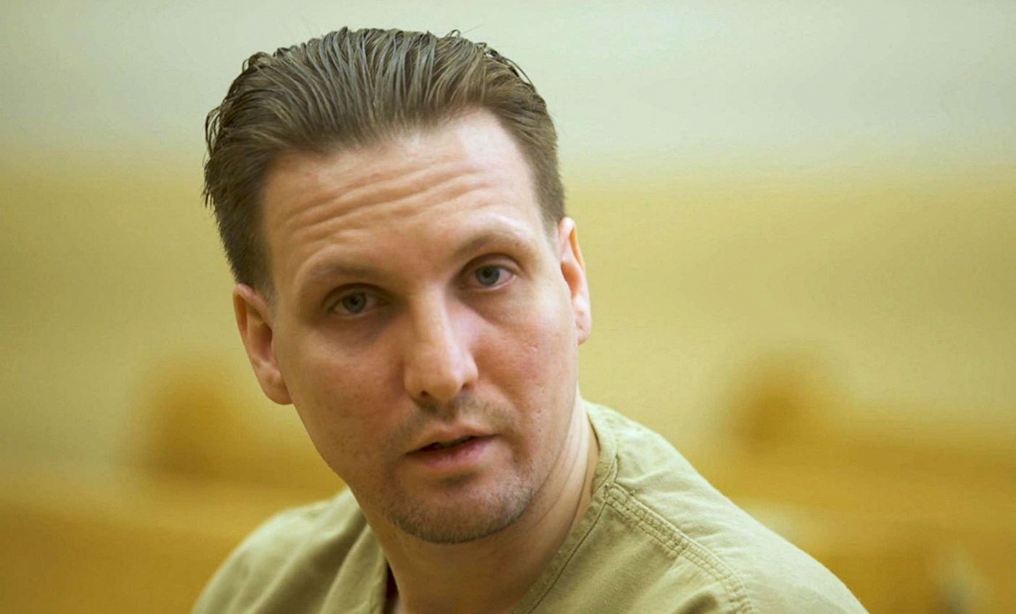Attorney for John Giuca Says Court of Appeals Was Misled Before Denying New Murder Trial
Mark Bederow, a criminal defense attorney from Manhattan representing Giuca, has now filed a new motion in Brooklyn Supreme Court seeking to have his conviction from 2005 thrown out.
August 07, 2019 at 11:48 AM
6 minute read
 John Giuca. Photo: ABC News
John Giuca. Photo: ABC News
An attorney for John Giuca, a Brooklyn man who has claimed for more than a decade that he was falsely accused of murdering a New Jersey college student, said in a new court filing that evidence was suppressed from the state’s highest court before it denied his client a new trial in June.
Mark Bederow, a criminal defense attorney from Manhattan representing Giuca, has now filed a new motion in Brooklyn Supreme Court seeking to have his conviction from 2005 thrown out.
Bederow wrote in the motion that prosecutors from the Brooklyn District Attorney’s Office failed to disclose, until last year, an audio recording before Giuca’s trial that could have exonerated him.
That recording was an interview between former Assistant District Attorney Anna-Sigga Nicolazzi and Joseph Ingram, who said that, contrary to what prosecutors had claimed, Giuca did not kill the student, Mark Fisher, and did not dispose of the gun used in the murder.
Ingram had apparently, according to the motion, been placed on Rikers Island in New York City, in the same cell block as Giuca. While there, he spoke to both Giuca and co-defendant Antonio Russo separately about their case.
During the interview, he told Nicolazzi that Giuca refused to get rid of the gun used to kill Fisher and that he wasn’t with Russo during the murder.
“John answered the door. [Russo] asked him to get rid of the weapon and John refused,” Ingram told Nicolazzi during the interview.
The interview contradicted trial testimony in 2005 from Anthony Beharry, who said at the time that Giuca asked him to get rid of a gun a few days after Fisher’s death. Beharry only testified after he was promised immunity, Bederow wrote. He later recanted his testimony.
That, coupled with an admission from Russo last year that Giuca wasn’t implicated in the murder, should have been enough to throw out his client’s conviction, Bederow said. But the evidence came to light too late, he wrote.
“The consequences of the limited hearing record couldn’t have been more serious: the Court of Appeals was unaware that Nicolazzi suppressed evidence that Giuca did not dispose of the murder weapon before the Court relied on ‘strong’ proof that Giuca did dispose of it to reinstate his conviction,” Bederow wrote.
The motion before the Court of Appeals earlier this year concerned testimony by John Avitto, a key witness in Giuca’s trial, who Bederow alleged had only agreed to testify against Giuca to avoid going back to prison after violating the terms of a drug treatment program. Avitto later recanted his testimony.
The Court of Appeals, in its decision in June, wrote that, while prosecutors could have clarified some of Avitto’s testimony, the guilty verdict against Giuca likely wouldn’t have changed, given other evidence presented at trial.
“The People presented strong evidence of defendant’s guilt at trial — including defendant’s self-incriminating statements to his friends, his efforts to dispose of the gun shortly after the murder and the physical evidence from his house [the blanket] recovered from the crime scene,” the high court’s decision said.
Neither the interview between Nicolazzi and Ingram nor Russo’s admission were able to be considered by the Court of Appeals in its decision because they didn’t come to light until last year, three years after Bederow filed the motion that was ultimately considered by the high court.
Bederow is now asking for Giuca’s conviction to be thrown out based on the new information from Ingram and Russo, coupled with evidence of Avitto’s possible motive for testifying against Giuca in 2005.
He also argued that Nicolazzi misled jurors at Giuca’s trial by stating repeatedly that “they knew” Giuca took the murder weapon from Russo and gave it to Beharry, despite Ingram saying the opposite.
Beharry, for his part, only testified at trial that Giuca gave him a gun of unknown caliber a few days after Fisher’s death. Prosecutors had alleged the Giuca had two guns, one of which was the wrong caliber used to kill Fisher. If the jury knew about Nicolazzi’s interview with Ingram, there could have been sufficient doubt cast on the charges against Giuca, Bederow wrote.
“Her blatant disregard for Giuca’s right to due process deprived the defense from presenting the jury with proof of Giuca’s actual innocence and evidence that would have severely damaged the case against him,” Bederow wrote.
It’s the latest development in a case dating back nearly two decades that’s had its fair share of twists and turns, namely after Giuca’s conviction.
At one point, years after the trial, a woman believed by prosecutors to have been Giuca’s wife contacted Avitto under a pseudonym and befriended him, for example. Avitto eventually told her he had fabricated his testimony against Giuca.
Bederow wrote in his new motion that the prosecution’s case against Giuca had been chipped away over the years, and couldn’t meet the burden to justify his conviction.
“There were no eyewitnesses against Giuca. There was no forensic evidence linking him to Fisher’s murder or the weapon Russo used to shoot Fisher,” Bederow wrote. “The case against Giuca was dependent on admitted liars who eventually were pressured into testifying that Giuca made a series of inconsistent and incompatible statements.”
A spokesman for the Brooklyn District Attorney’s Office said it is reviewing the new motion from Bederow.
READ MORE:
Court of Appeals Denies John Giuca New Murder Trial, Reversing Appellate Decision
Some Thoughts on ‘People v. John Giuca’
NY Court of Appeals Set to Eye Alleged Withholding of Evidence in Murder Trial of John Giuca
This content has been archived. It is available through our partners, LexisNexis® and Bloomberg Law.
To view this content, please continue to their sites.
Not a Lexis Subscriber?
Subscribe Now
Not a Bloomberg Law Subscriber?
Subscribe Now
NOT FOR REPRINT
© 2025 ALM Global, LLC, All Rights Reserved. Request academic re-use from www.copyright.com. All other uses, submit a request to [email protected]. For more information visit Asset & Logo Licensing.
You Might Like
View All
Weil Lures DOJ Antitrust Lawyer, As Government Lateral Moves Pick Up Before Inauguration Day
4 minute readTrending Stories
- 1'Not the President's Personal Lawyer': Lawyers Share Concerns Over How AG Pick Bondi’s Loyalism to Trump May Impact DOJ
- 2US Judge OKs Partial Release of Ex-Special Counsel's Final Report in Election Case
- 3The Demise of Truth and Transparency in Federal Sentencing
- 4Former Phila. Solicitor Sozi Tulante Rejoins Dechert
- 5'I've Seen Terrible Things': Lawyer Predicts Spike in Hazing Suits
Who Got The Work
Michael G. Bongiorno, Andrew Scott Dulberg and Elizabeth E. Driscoll from Wilmer Cutler Pickering Hale and Dorr have stepped in to represent Symbotic Inc., an A.I.-enabled technology platform that focuses on increasing supply chain efficiency, and other defendants in a pending shareholder derivative lawsuit. The case, filed Oct. 2 in Massachusetts District Court by the Brown Law Firm on behalf of Stephen Austen, accuses certain officers and directors of misleading investors in regard to Symbotic's potential for margin growth by failing to disclose that the company was not equipped to timely deploy its systems or manage expenses through project delays. The case, assigned to U.S. District Judge Nathaniel M. Gorton, is 1:24-cv-12522, Austen v. Cohen et al.
Who Got The Work
Edmund Polubinski and Marie Killmond of Davis Polk & Wardwell have entered appearances for data platform software development company MongoDB and other defendants in a pending shareholder derivative lawsuit. The action, filed Oct. 7 in New York Southern District Court by the Brown Law Firm, accuses the company's directors and/or officers of falsely expressing confidence in the company’s restructuring of its sales incentive plan and downplaying the severity of decreases in its upfront commitments. The case is 1:24-cv-07594, Roy v. Ittycheria et al.
Who Got The Work
Amy O. Bruchs and Kurt F. Ellison of Michael Best & Friedrich have entered appearances for Epic Systems Corp. in a pending employment discrimination lawsuit. The suit was filed Sept. 7 in Wisconsin Western District Court by Levine Eisberner LLC and Siri & Glimstad on behalf of a project manager who claims that he was wrongfully terminated after applying for a religious exemption to the defendant's COVID-19 vaccine mandate. The case, assigned to U.S. Magistrate Judge Anita Marie Boor, is 3:24-cv-00630, Secker, Nathan v. Epic Systems Corporation.
Who Got The Work
David X. Sullivan, Thomas J. Finn and Gregory A. Hall from McCarter & English have entered appearances for Sunrun Installation Services in a pending civil rights lawsuit. The complaint was filed Sept. 4 in Connecticut District Court by attorney Robert M. Berke on behalf of former employee George Edward Steins, who was arrested and charged with employing an unregistered home improvement salesperson. The complaint alleges that had Sunrun informed the Connecticut Department of Consumer Protection that the plaintiff's employment had ended in 2017 and that he no longer held Sunrun's home improvement contractor license, he would not have been hit with charges, which were dismissed in May 2024. The case, assigned to U.S. District Judge Jeffrey A. Meyer, is 3:24-cv-01423, Steins v. Sunrun, Inc. et al.
Who Got The Work
Greenberg Traurig shareholder Joshua L. Raskin has entered an appearance for boohoo.com UK Ltd. in a pending patent infringement lawsuit. The suit, filed Sept. 3 in Texas Eastern District Court by Rozier Hardt McDonough on behalf of Alto Dynamics, asserts five patents related to an online shopping platform. The case, assigned to U.S. District Judge Rodney Gilstrap, is 2:24-cv-00719, Alto Dynamics, LLC v. boohoo.com UK Limited.
Featured Firms
Law Offices of Gary Martin Hays & Associates, P.C.
(470) 294-1674
Law Offices of Mark E. Salomone
(857) 444-6468
Smith & Hassler
(713) 739-1250









